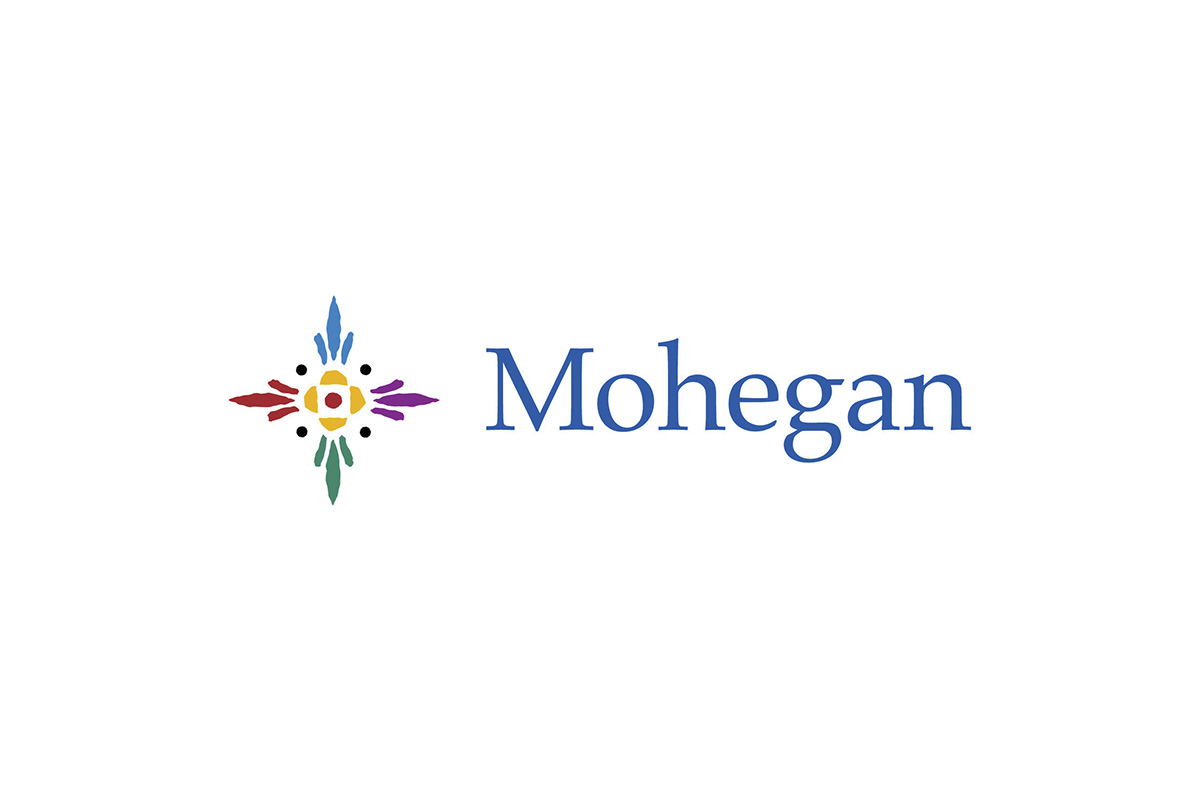

Gambling in the USA
Mohegan Named to Newsweek’s List of the Top 100 Global Most Loved Workplaces for 2023
Newsweek announced their annual rankings for the Top 100 Global Most Loved Workplaces list, and Mohegan was ranked 85. The 2023 Global Top 100 Most Loved Workplaces is the newest list in the Most Loved Workplace developed in collaboration with the Best Practice Institute (BPI), a leadership development and benchmark research company.
The results were determined after surveying more than 2 million team members from businesses with workforces varying in size from 30 to more than 10,000. The list recognizes companies that put respect, caring, and appreciation for their employees at the center of their business model and, in doing so, have earned the loyalty and respect of the people who work for them.
“We are thrilled to be recognized as one of the most loved workplaces. At Mohegan, we prioritize creating a culture where team members feel valued, supported and empowered to contribute to our mission. This recognition is a testament to our entire team’s hard work, dedication and commitment. As a global organization with properties already in Canada, this award comes on the brink of our plan to recruit an additional 2,000 Mohegan team members for our new INSPIRE Entertainment Resort in Korea. We look forward to onboarding these team members into our Most Loved Workplace,” Patricia Smith, Chief People Officer at Mohegan, said.
How positive workers feel about their future at the company, career achievement, how much employer values align with employee values, respect at all levels and the level of collaboration at the firm were the five critical areas measured to gauge team member sentiment. In addition, areas such as inclusion, diversity, equity and belonging, career development, and company leadership were identified and analyzed in relation to the five critical areas measured.
“I am honored and humbled that Mohegan has been named to the Newsweek Top 100 Global Most Loved Workplaces list and to have been ranked at 85. This is an exciting result after Mohegan was ranked among the Top 100 U.S. Companies in 2022. We are committed to fostering a positive and supportive workplace culture at Mohegan. Guided by the Spirit of Aquai, which represents our way of being welcoming, cooperative, building relationships, and having mutual respect for others, we strive to create a supportive and inclusive environment where everyone feels valued and empowered to do their best work. Having been a Mohegan team member for more than 20 years, I can attest that this recognition strengthens our commitment to fostering a culture of excellence and innovation, and we are proud to be included alongside some of the best companies in the world,” Ray Pineault, President and CEO of Mohegan, said.
“While workplace dynamics continue to evolve, the power of a positive culture remains constant. The companies featured on the 2023 Global Most Loved Workplaces list embody this transformative spirit, proving that when companies prioritize their people, success naturally follows,” Nancy Cooper, Global Editor in Chief of Newsweek, said.
“Since our initial publication of the Most Loved Workplaces List in 2021, the workplace landscape has undergone a significant transformation, including shifts like Return to Office, Hybrid Work, The Great Resignation, Quiet Quitting, and Layoffs, among others. Throughout these changes, the crucial element consistently tied to the success of a Most Loved Workplace culture, which attracts and motivates exceptional talent, is cultivating positive and more meaningful connections between companies and employees. This year’s featured companies on the Most Loved Workplace list exemplify this principle, even globally,” said Most Loved Workplace Founder and CEO Louis Carter.
Gambling in the USA
Kambi Group plc extends Mohegan partnership with on-property sports betting agreement in Pennsylvania
Kambi Group plc (“Kambi”), the world’s trusted sports betting partner, has agreed a long-term on-property sportsbook partnership with Mohegan to provide its award-winning sportsbook at two retail locations in the state of Pennsylvania.
The partnership will see Mohegan utilise Kambi’s cutting-edge retail sportsbook offering across more than 20 kiosks in sportsbook locations at Mohegan Pennsylvania and Mohegan Pennsylvania at Lehigh Valley Race and Sportsbook.
The deal further strengthens Kambi’s relationship with Mohegan, which already utilises Kambi’s suite of sports betting products at ilani in Washington, as well as online and on-property in the Canadian province of Ontario at Fallsview Casino Resort and Casino Niagara.
Kristian Nylén, Kambi CEO and Co-founder, said: “With several successful partnerships with Mohegan already in place, we are pleased to agree this new partnership as we continue to build on our strong relationship.
“This latest deal further reinforces Kambi’s position as the sportsbook provider of choice for tribes across North America, and we look forward to our ongoing collaboration with Mohegan.”
Tony Carlucci, President & GM of Mohegan Pennsylvania, said: “Mohegan Pennsylvania is excited to continue utilising the same Kambi technology platform that existed under our Kindred partnership, which will help to create a seamless process as the Sportsbook at Mohegan Pennsylvania fully rebrands later this Spring.”
Blockchain
JuicyBet Launches Its Innovative GambleFi Platform

JuicyBet, a Web3 startup, announced the launch of its GambleFi platform. This platform combines finance technology and gambling via blockchain to create unique opportunities and experiences for users. The company strives to revolutionize the principles of the online betting industry and the interaction between platforms and users in this market.
What is GambleFi?
GambleFi uses blockchain technology to ensure the fairness and transparency of games and betting outcomes and for players to get their share of the platform’s earnings and participate in its governance and day-to-day by holding its tokens.
How JuicyBet works
JuicyBet fully utilizes blockchain technology to establish a new ecosystem that has never been seen in the gambling industry. It is centered around user participation and transparency while providing gambling thrills and quality entertainment.
All game records on the platform are kept in a public blockchain, while a set of smart contracts automates gaming outcomes and payouts and provides for the platform governance via the DAO model. This reduces fraud risks and operational costs, making JuicyBet a more efficient platform.
However, the platform’s main feature is the unprecedented level of user engagement via the platform’s native tokens.
- First, the tokens provide access to betting.
- Second, token holders get their share of the platform’s profit.
- Third, token holders can vote on key decisions on the platform’s development in JuicyBet DAO.
- And finally, DAO participants can also perform the role of oracles for bets and earn rewards.
In other words, JuicyBet doesn’t try to be just another gambling platform. It establishes a new ecosystem where users are in control of the platform and bets and are the beneficiaries of the platform.
In addition, JuicyBet offers additional earning opportunities, such as Double Farming and staking for token holders.
JuicyBet has already been noticed by users and investors – the platform’s 3-month turnover has exceeded $1,5 million, according to on-chain data available via Dune, and multiple centralized exchanges and launchpads have listed it.
eSports
R&D rethink needed for sportsbooks to harness esports’ power

 Esports betting is still grappling with a perception problem amongst operators. Despite the leaps and bounds in product development made by suppliers – particularly in the last two years – esports hasn’t shaken off the image built in the late 2010s.
Esports betting is still grappling with a perception problem amongst operators. Despite the leaps and bounds in product development made by suppliers – particularly in the last two years – esports hasn’t shaken off the image built in the late 2010s.
Our good friend, Oliver Niner, Head of Sales at PandaScore, has been kind to share the below article with us.
There’s scepticism around esports betting’s value, how well it can actually perform and what’s needed to make it appeal to bettors. A big part of that comes down to perception, which shapes the research and development (R&D) choices made by each operator.
Self-fulfilling prophecy?
Operators who have put the research and development (R&D) resources into esports are seeing excellent growth, while others are still treating it like part of a long tail. The lack of a uniform approach to esports often translates into hesitancy to be bullish and invest in esports.
Whereas in the United States, post-PASPA sports betting has exploded and operators are seeking to capture as much territory and market share as possible because in most cases, you switch the lights on and the money comes in. It’s, of course, good business sense to take opportunities like this – you can apply the same templates used elsewhere on an incredibly lucrative market.
This kind of approach has been attempted for esports and hasn’t found the same success. Granted, the legislation for betting on esports has been somewhat slower than that of sports betting and iGaming.
However, bullish operators have acknowledged the fact that esports hasn’t found the same success in regulated states and asked what can be done differently, while for others, esports has been thrown into the too-hard basket or relegated to the bargain bucket.
For the latter, the fate of the esports vertical becomes a self-fulfilling prophecy – especially if an operator already using a budget esports product that throttles its very growth.
It takes two to tango
When esports is discussed in broader betting circles, you’ll often hear different versions of the same talking point: the problem with esports is no one is doing it well, it doesn’t innovate.
This argument is a case of the pot calling the kettle black. Esports is a driver of innovation, and it is sportsbook R&D that is holding it back.
Multiple suppliers on the market are investing significant resources into R&D, and bullish operators are leveraging these product innovations to acquire new customers and create engagements made for the internet age.
There are understandable reasons why sports betting doesn’t innovate. It’s largely because operators focus on acquisition, entering new territories and spending money on data rights. But the actual R&D on sportsbook products is left lacking, with ever-increasing cost-per-acquisition (CPA) numbers a clear symptom of this.
It means that if an operator does decide to use or acquire an esports specialist supplier but does little to cater its product and attempts to just lay the sports betting template over the top, of course performance will be throttled.
It’s like putting a Ferrari engine in a Prius – no offence to Toyota or Prius owners.
The same problem exists on the platform supplier front. Platforms are understandably focused on compliance and getting customers live, not necessarily improving models or their products.
Even the idea that if you just acquire an innovative company the problem is solved or you have found the solution, doesn’t hold water. In many cases, the company is acquired and plenty of noise is made about it, but there’s little organisational investment in R&D afterwards.
It’s not just in esports
These problems extend to customer acquisition and marketing for most emerging markets, not just esports. There’s a rush to use the same old playbook in newer sectors because it’s easy.
The fantasy vs. house sector in the US is already experiencing an acquisition arms race. As analyst Dustin Gouker points out, deposit match bonuses for new users on fantasy vs house products have jumped from $100 to as high as $500 in some places.
This is the same race that played out in sports betting and despite the costs, there’s little effort from most operators to try something different. There’s less work when you just put the same acquisition template on an emerging sector and call it a day. This seems to be an accepted practice in the industry, for better or for worse.
Esports betting success requires ongoing dialogue
Rather than attempting to wedge esports into hegemonic sportsbook approaches, sportsbooks need to take a completely unique approach.
The fact is the betting sector has barely scratched the surface – communities of esports fans are still dormant. Canadian operator Rivalry has built a successful, esports-first business by embracing the ever-changing internet culture that esports inhabits. French esports organisation Karmine Corp recently sold out a 30,000-person stadium for an event with no prize money up for grabs.
Innovative products developed on the supplier side like microbetting and betbuilders are only half of the equation.
Maximising esports revenues requires institutional investment, ongoing R&D and collaboration between suppliers and operators to create products and experiences. This includes having staff on the operator side that can drive and push the product further, and crucially, rethinking current sportsbook strategies and practices.
Building experiences for betting’s greatest emerging market – one that caters to your future core audience – takes investment, innovation and a willingness to experiment. If the industry wants to make the most of the Millennial and Gen Z audience that will become its primary customers, investment into R&D and close collaboration between suppliers and operators is needed. Many hands makes light work.
-

 gaming2 years ago
gaming2 years agoODIN by 4Players: Immersive, state-of-the-art in-game audio launches into the next generation of gaming
-
EEG iGaming Directory7 years ago
iSoftBet continues to grow with new release Forest Mania
-
News6 years ago
Softbroke collaborates with Asia Live Tech for the expansion of the service line in the igaming market
-
News5 years ago
Super Bowl LIII: NFL Fans Can Bet on the #1 Sportsbook Review Site Betting-Super-Bowl.com, Providing Free Unbiased and Trusted News, Picks and Predictions
-
iGaming Industry6 years ago
Rick Meitzler appointed to the Indian Gaming Magazine Advisory Board for 2018
-
News5 years ago
REVEALED: Top eSports players set to earn $3.2 million in 2019
-
iGaming Industry6 years ago
French Senator raises Loot Boxes to France’s Gambling Regulator
-
News6 years ago
Exclusive Interview with Miklos Handa (Founder of the email marketing solutions, “MailMike.net”), speaker at Vienna International Gaming Expo 2018
















